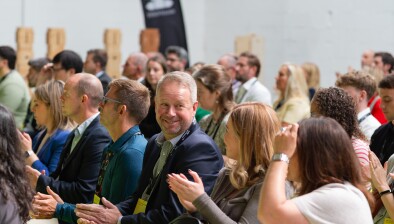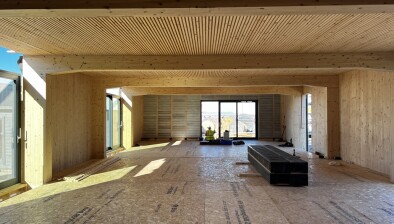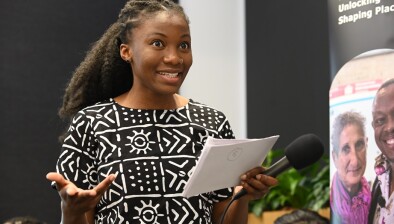New programme launched to pilot innovation strategy for colleges and key industries
 Construction Scotland Innovation Centre (CSIC) and the Digital Health and Care Institute (DHI) are leading a pilot project that will explore a range of ways that colleges and innovation centres can work together to support business innovation.
Construction Scotland Innovation Centre (CSIC) and the Digital Health and Care Institute (DHI) are leading a pilot project that will explore a range of ways that colleges and innovation centres can work together to support business innovation.
FUTUREquipped will see four of Scotland’s innovation centres and 13 colleges collaborating directly with industry to upgrade and future-proof skills training and workforce development in the key areas of construction and engineering, health and care, and information technology.
The programme is the flagship project being funded by the new £500,000 College Innovation Fund launched earlier this year by Paul Wheelhouse, minister for business, innovation and energy.
Co-designed and led by CSIC and DHI, with support from The Data Lab and CENSIS, the programme will embed practical approaches to workforce training and collaboration with industry. It will focus on technology-enabled health and care, augmented/virtual reality design and build, advanced construction and offsite technologies, and sensor technology and data through the joint medium of Smart Housing that brings these domains together.
CSIC and DHI will be the hubs for delivering the programme. Digital, robotic and offsite construction technologies are available in CSIC’s Innovation Factory in Hamilton. At DHI, as well as expertise on digital health and care innovation, the DHI’s will give the project participants an access to the soon-to-be-launched Demonstration and Simulation Environment for testing and showcasing existing technologies and simulating the integration of these technologies and data flows in health and care.
The project consists of two consecutive and one parallel workstream:
Workstream 1 will begin in August, when 27 college lecturers from 13 colleges will spend five days together on an innovation learning programme. This is designed to upskill and support them in training future workforces in terms of skills and capabilities needed to work in environments encompassing emerging innovations and technologies.
Participants will be introduced to the latest developments in digitally enabled health and care, and construction practices through the medium of Smart housing. They will attend several site visits and be asked to collaboratively develop new teaching modules to integrate their learnings from the pilot into the respective college courses.
Rohan Bush, head of public partnerships and future workforce at CSIC, said: “The FUTUREquipped project will help prepare Scotland’s future workforce for the myriad of challenges and opportunities already inherent in the fast-paced digital and technical revolution we’re experiencing.
“We’re honoured to be hosting the programme, which represents a world-class opportunity for Scotland to integrate and future-proof all three key contributors to progress, which are skills training, workforce development and industry integration.”
Professor George Crooks, chief executive officer at the Digital Health & Care Institute, said: “FUTUREquipped is in itself an innovative project, bringing Innovation Centres closer to colleges and creating a partnership that will help create a future workforce for the health and care sector that understand and are motivated to innovate. They will understand and embrace the opportunities that digital tools and services can bring to support their patients, clients, themselves and their colleagues to deliver safe and high-quality services.
“By building relationships with the college staff, the Innovation Centres can better understand how to build further meaningful collaborations that can help shape the future where people can live longer, healthier lives at home and in their own communities, feeling safe, supported and valued.”
Jason Fraser, technical director at Norscot, said: “As a supplier to the construction sector, Norscot are acutely aware of the need to prepare future construction workers with the skills needed to adapt and contribute to an ever-evolving construction landscape.
“Following on from the award winning collaboration with Strathclyde University on our Virtual Reality show home software, we are pleased to expand our relationship with the academic world to support the FUTUREquipped project.
“It is an exciting prospect for Norscot to play a contributing role in shaping the future of education and skills development within our sector, as well as the health and digital spaces; while the opportunity to work with 13 Scottish Colleges, share our knowledge and work collaboratively to explore new industry level innovations is very welcome.
“It is imperative that our future workforce is empowered to learn and adapt to new technologies and innovations as they become available to industry, with a view to this supporting a more productive construction sector and greater employability for College graduates moving forward.”















